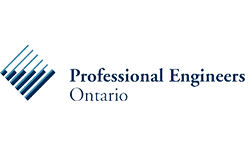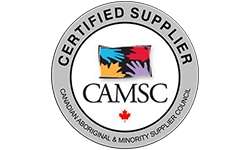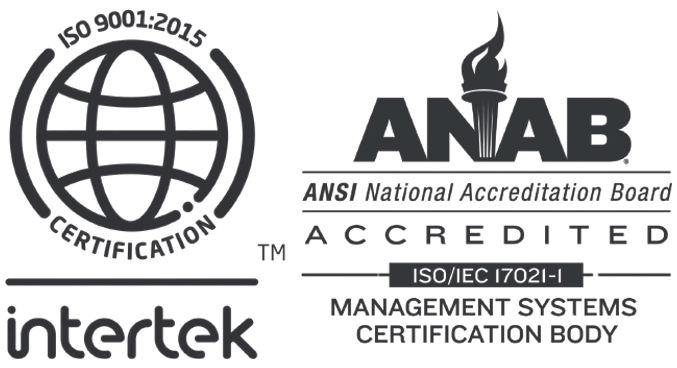
Automation in the Pharmaceutical Industry: Al Evolution
by Dhika Prameswari and Nur Hotimah Yusof
As automation in the pharmaceutical industry continued to evolve, the 21st century introduced sophisticated technologies that fundamentally transformed manufacturing, quality assurance, and distribution practices. With innovations like robotics, IoT, blockchain, and artificial intelligence (AI), the industry has progressed towards an unprecedented level of operational efficiency and accuracy. Part 2 of this article explores how these technologies, in conjunction with real-time data analytics, cloud computing, and regulatory compliance solutions, have revolutionized pharmaceutical processes, laying the groundwork for the future trajectory of automation.
a. Advanced Robotics and Automation
- Robotic Picking Systems: The advancement of increasingly sophisticated robotic picking systems has fundamentally transformed warehouse operations. These robotic systems employ advanced sensors and artificial intelligence algorithms to manipulate, classify, and package products with exceptional accuracy and rapidity. They exhibit the capability to adjust to various categories of products and packaging, thereby enhancing operational efficiency to a significant extent.
- Autonomous Mobile Robots (AMRs): Autonomous Mobile Robots (AMRs) are employed for the management of materials within storage facilities and manufacturing areas. Equipped with advanced sensors and sophisticated navigation systems, AMRs possess the capability to autonomously transfer materials between various locations, thereby minimizing the necessity for human participation and enhancing the efficiency of warehouse operations.
b. IoT and Smart Warehousing
- Internet of Things (IoT): The integration of Internet of Things (IoT) technology into supply chain management has facilitated the real-time tracking and surveillance of inventory, equipment, and environmental parameters. IoT sensors yield data regarding temperature, humidity, and other essential variables that are pivotal for maintaining the quality of pharmaceutical products.
- Smart Warehousing: Smart warehousing leverages IoT technology to automate inventory management, track product movements, and optimize storage space.
c. Blockchain Technology
- Blockchain for Traceability: Blockchain technology provides a decentralized and immutable ledger that records transactions and interactions in a transparent manner. Through the provision of a decentralized and immutable record of transactions, blockchain technology guarantees the integrity and authenticity of pharmaceutical products, thereby mitigating the risk of counterfeiting and facilitating adherence to regulatory standards.
- Serialization and Track-and-Trace: Serialization refers to assigning unique identification codes to individual products, which can then be tracked and traced throughout the supply chain.
d. Artificial Intelligence (AI) and Machine Learning (ML)
Artificial Intelligence (AI) and Machine Learning (ML) are revolutionizing various aspects of supply chain management by providing advanced tools for forecasting, optimization, and decision-making.
- AI-Driven Demand Forecasting: AI-driven demand forecasting utilizes machine learning algorithms to analyze historical data, market trends, and external factors to predict future product demand with high accuracy.
- Supply Chain Optimization: Artificial intelligence algorithms are employed to enhance supply chain operations by identifying inefficiencies, forecasting of potential disruptions, and suggesting areas for improvement. Systems powered by artificial intelligence possess the capability to adaptively modify supply chain parameters in alignment with real-time data, thereby improving overall efficiency and resilience.
e. Advanced Analytics and Real-Time Data
Advanced analytics and real-time data technologies are transforming the way businesses approach decision-making, operational efficiency, and strategic planning.
- Real-Time Data Analytics: Real-time data analytics involves the continuous collection and analysis of data. This approach provides immediate insights into operational performance, customer behavior, and market conditions. Therefore, this functionality enables organizations to systematically assess key performance indicators (KPIs), identify trends, and make data-driven decisions quickly.
- Predictive Analytics: Predictive analytics utilizes statistical algorithms, machine learning models, and historical data to forecast future events and trends. This technology helps in anticipating potential supply chain disruptions, optimizing logistics, and managing inventory more effectively.
f. Digital Twins
- Digital Twin Technology refers to the creation of a virtual replica of physical systems, processes, or products that can simulate, monitor, and optimize real-world operations in real-time. By creating digital models, companies can simulate different scenarios, analyze performance, and optimize operations without disrupting real-world processes. In the pharmaceutical industry, digital twins are increasingly being used to enhance manufacturing processes, equipment performance, and product quality. Digital twin technology is a powerful tool that enables pharmaceutical companies to innovate, optimize, and maintain high standards of production and quality control.
g. Cloud Computing and Integration
- Cloud-Based Supply Chain Management: Cloud-based supply chain management (SCM) solutions leverage cloud computing to provide a centralized, scalable platform for managing and optimizing supply chain activities.
- Integrated Platforms: Cloud-based integrated platforms bring together various business functions and data sources into a unified system, from procurement and manufacturing to distribution and customer service, enhancing data flow, visibility, and streamlining processes.
h. Regulatory Compliance and e-Compliance Solutions
- Automated Compliance Monitoring: Automated compliance monitoring utilizes advanced software tools and systems to continuously track and ensure adherence to regulatory requirements. These systems provide real-time updates, generate compliance reports, and facilitate audits.
- Electronic Lab Notebooks (ELNs): Electronic Lab Notebooks (ELNs) replace traditional paper lab notebooks with digital alternatives, offering a more efficient and organized way to document and manage experimental data. This technology ensures accurate and readily accessible records for regulatory reviews and inspections.
Conclusion
Part 2 of the “Automation in the Pharmaceutical Industry” series explores the transformative journey of automation from the 2000s onward. Since the 2000s, advancements in technology have profoundly altered the automation processes within supply chain management and distribution in the pharmaceutical sector. The incorporation of robotics, the Internet of Things (IoT), blockchain technology, artificial intelligence (AI), and cloud computing has significantly improved operational efficiency, accuracy, and transparency. These technological innovations effectively address the complexities faced by modern supply chains, including regulatory compliance and demand variability, and pave the way for continued enhancement in pharmaceuticals.
Partnering with PharmEng Technology
In a rapidly evolving pharmaceutical landscape, staying ahead is essential. At PharmEng Technology, we empower you to harness cutting-edge innovations like AI, robotics, IoT, and cloud computing.
Partner with us for expert guidance and tailored solutions designed to navigate regulatory complexities and optimize your operations. Whether it’s implementing AI-driven demand forecasting, leveraging digital twin technologies, or enhancing your data management systems, our experienced team is here to support you every step of the way.
Ready to transform your processes? Contact us today at info.asia@pharmeng.com to request a free assessment and discover how we can drive efficiencies across your supply chain and production!
About PharmEng Technology
PharmEng Technology is a global consulting firm specializing in pharmaceutical engineering, regulatory affairs, and compliance. With a commitment to quality and innovation, PharmEng Technology provides comprehensive solutions to meet the evolving needs of the pharmaceutical and biotechnology industries.
Contact Information
PharmEng Technology
Email: info.asia@pharmeng.com











